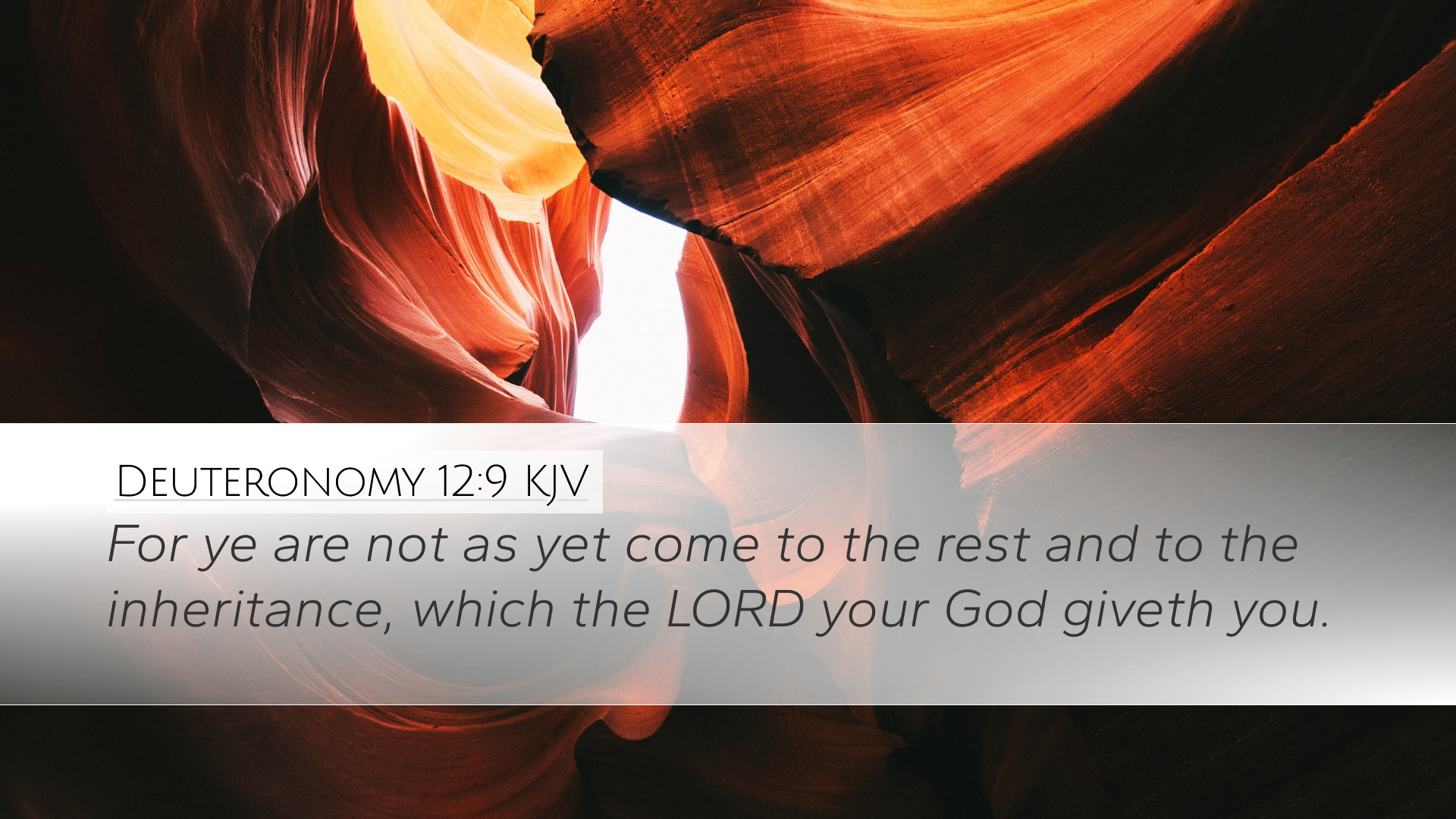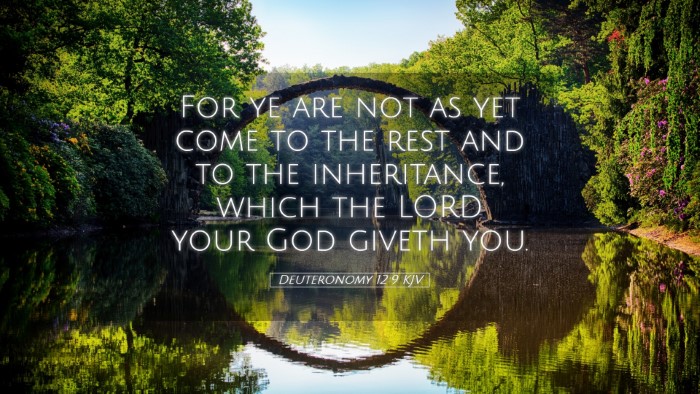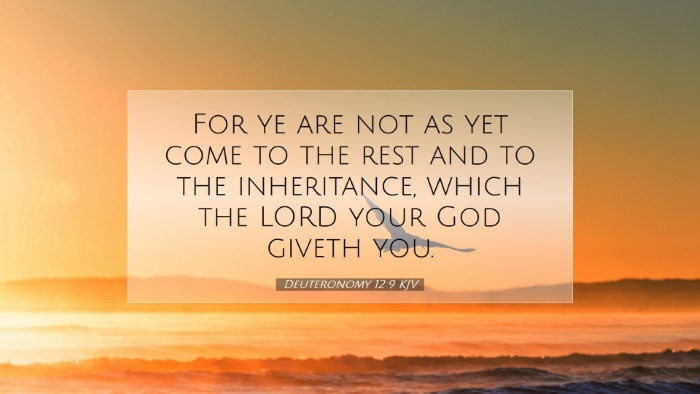Commentary on Deuteronomy 12:9
Verse: "For ye are not as yet come to the rest and to the inheritance, which the LORD your God giveth you."
Introduction
The passage in Deuteronomy 12:9 encapsulates a pivotal moment for the Israelites as they stand on the brink of entering the Promised Land. This verse serves to remind the people that they have not yet fully entered into the rest and inheritance promised by God. The reflections gathered from various public domain commentaries illuminate profound theological realities and practical implications of this text for believers today.
Historical Context
Matthew Henry emphasizes that this verse is set within a broader context where Moses instructs the Israelites on worship and the proper observance of their covenant with God. The people are about to cross into a land that God has promised them, signifying a transition from wandering in the wilderness to settling in a land of promise.
Theological Insights
The Theme of Rest
Adam Clarke notes that the term "rest" can primarily be understood as a cessation from labor and a time to flourish in the blessings of God. It symbolizes not merely a physical place, but a spiritual state where the faithful can experience peace and security in God's presence.
Inheritance as God's Gift
Albert Barnes emphasizes that the "inheritance" signifies both a physical territory and the spiritual blessings associated with being God's chosen people. The land of Canaan represents God’s faithfulness and the fulfillment of promises made to the forefathers—the patriarch Abraham, Isaac, and Jacob.
Practical Applications
Encouragement in Waiting
This verse serves as encouragement to believers who may feel as if they are in a waiting period in their spiritual journey. As Matthew Henry articulates, the Israelites were reminded that their journey was not completed; similarly, Christians today must recognize that their spiritual race continues until they reach their ultimate rest in Christ.
Recognizing the Present Yet Not Complete
Reflection upon this verse prompts believers to appreciate the blessings of the present while acknowledging that the ultimate fulfillment awaits. Clarke suggests that just as the Israelites looked forward to their inheritance, Christians are called to anticipate the eternal life promised through Jesus Christ.
The Role of Obedience
The journey toward this rest and inheritance was contingent upon the Israelites' obedience to God's laws. Henry highlights this essential connection; obedience was not merely ceremonial but relational, expressing a commitment to a covenantal relationship with God. Their entrance into the land was tied directly to their fidelity to God's commands.
Conclusion
Deuteronomy 12:9 serves as a profound reminder of the journey of faith that entails both waiting and hopeful anticipation. For pastors, students, and theologians, this verse encapsulates key theological themes of rest, inheritance, and the necessity of obedience to God. As believers continue their pilgrim journey towards the ultimate inheritance in Christ, this passage encourages them to remain diligent, faithful, and steadfast, trusting in God's timing and provision.
Reflections for Today
- Endurance: Christians are encouraged to persevere as they await their spiritual inheritance.
- Gratitude: Cultivating an attitude of thankfulness for what has been received while awaiting future promises.
- Expectation: Living in hope and anticipation of the fulfillment of God’s promises in their lives.
Final Thoughts
As we engage with Deuteronomy 12:9, may we be reminded of our own spiritual journey. Let this verse encourage introspection into how we view our progress and relationship with God. Much like the Israelites, we stand in a space between promise and fulfillment, always seeking the deeper rest that only God can provide.


